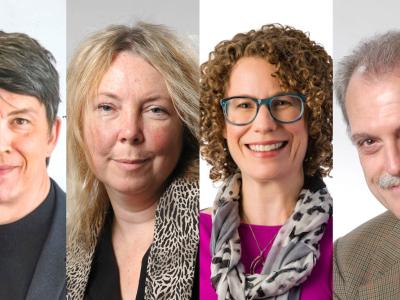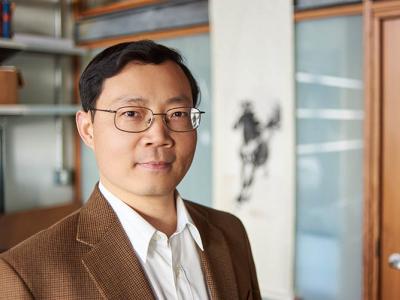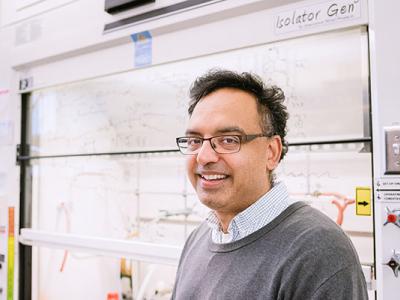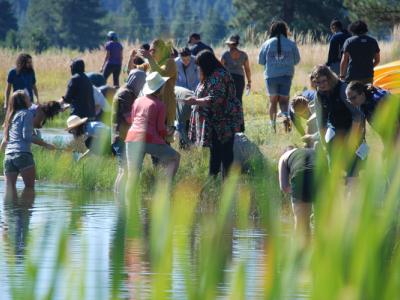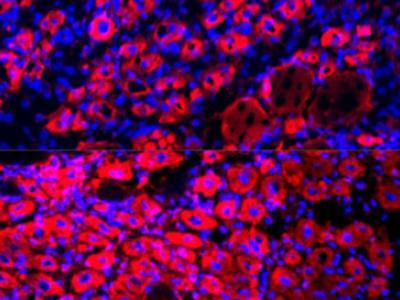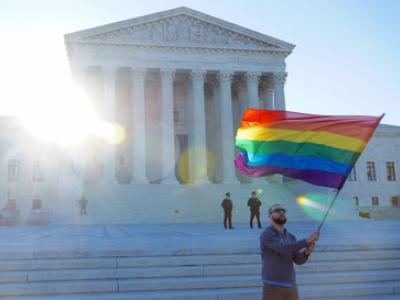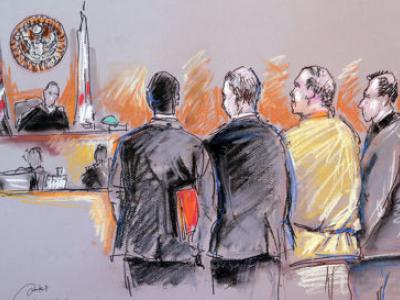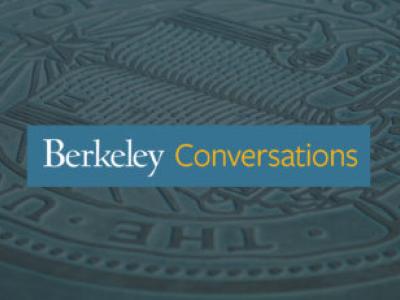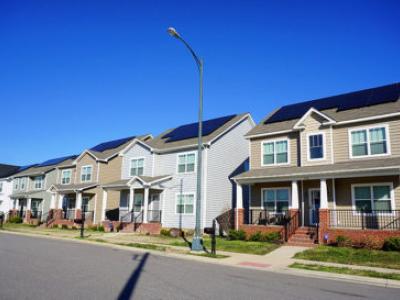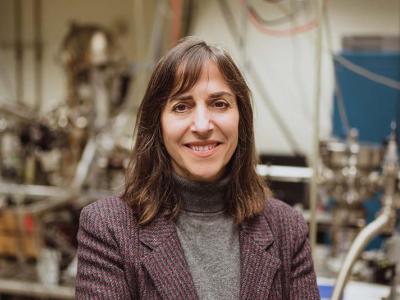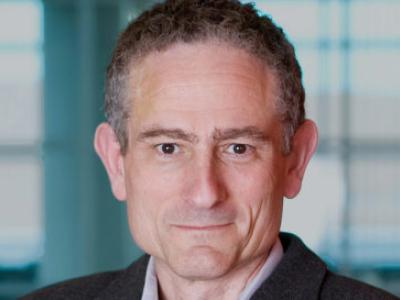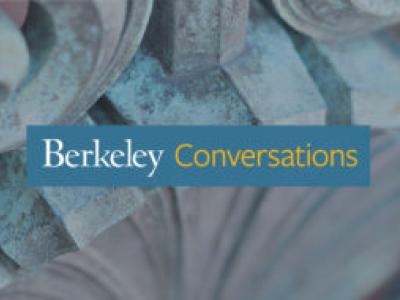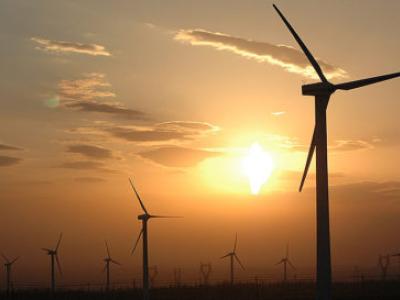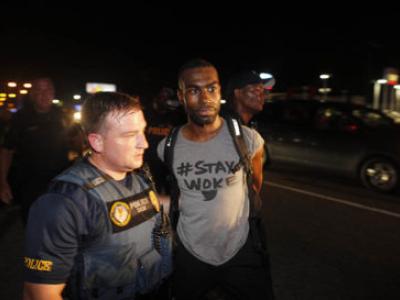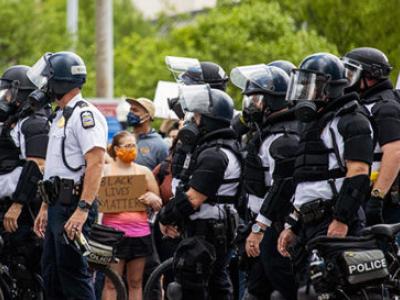The newly formed research consortium C3.ai Digital Transformation Institute has made awards to 26 research projects led by top scientists and engineers to mitigate the COVID-19 pandemic. Four of the recipients have faculty appointments at UC Berkeley’s College of Engineering.
Research News
Learn more about UC Berkeley's researchers and innovators.
Showing 1265 - 1280 of 3459 Results
Campus research buildings, shuttered due to the coronavirus pandemic, are slowly, safely reopening, and officials expect to welcome back researchers to more than two dozen buildings by the end of June.
A few years ago, Junqiao Wu, a UC Berkeley professor of material science and engineering, figured out how he could use thermal power to transform materials: roofs that adapt to temperatures and save energy, new types of sunglasses and even tools that could screen for cancer or monitor hidden defects in buildings.
Up to 20 percent of UTIs are caused by a particularly resistant microbe known as ESBL-producing bacteria. These infections do not respond to the standard antibiotic treatment. With support as a 2019-2020 Bakar FellowNiren Murthy, professor of bioengineering, and colleagues have developed a 30-minute, low-tech test, called DETECT, to identify ESBL-producing bacteria on a patient’s first visit to the doctor.
The COVID-19 pandemic threatens the survival of organizations nationwide that provide critical outdoor environmental and science education to K-12 students, with an alarming 63% of such groups uncertain about their ability to ever reopen their doors, according to a study released this week by the Lawrence Hall of Science at the University of California, Berkeley.
In 2005, University of California, Berkeley, researchers made the surprising discovery that making conjoined twins out of young and old mice — such that they share blood and organs — can rejuvenate tissues and reverse the signs of aging in the old mice. The finding sparked a flurry of research into whether a youngster’s blood might contain special proteins or molecules that could serve as a “fountain of youth” for mice and humans alike.
The U.S. Supreme Court on Monday ruled that federal anti-discrimination law protects gay, lesbian and transgender people from job and employment discrimination, for the first time extending protections to LGBTQ people in every state.
An eye-opening report from Berkeley Law’s Death Penalty Clinic finds that racial discrimination is a consistent aspect of jury selection in California. The exhaustive studyinvestigates the history, legacy, and ongoing practice of excluding people of color—especially African Americans—from state juries through prosecutors’ peremptory challenges.
As the public health community races to contain the current global pandemic, researchers are working diligently to understand the novel coronavirus. Such efforts cross many facets of scientific research — from virology to wildlife ecology to medicine — with the ultimate hope of containing the virus and developing a vaccine.
In adopting a different diet or driving less, a person has an effect on the planet, says Robert Frank, an economics professor at Cornell University. But not for the reason they might think.
CO2 concentration in fresh air is about 400 parts per million (ppm). But get a group of people packed in a closed indoor space, and CO2 concentration can rise quickly. Recent studies suggest that as levels increase above 1,000 ppm, decision-making and other cognitive abilities decline. Roya Maboudian studies the properties of nano-materials, including how their surfaces affect their performance. As a 2019-2020 Bakar Fellow, she is developing small, inexpensive and sensitive CO2 sensors.
Neuroscientist Corey Goodman, a longtime researcher at the University of California, Berkeley, who went on to start numerous biotech companies and, most recently, co-founded a venture capital firm, has been awarded the 2020 Gruber Neuroscience Prize.
COVID-19 is threatening the health and economic security of communities around the world, with dire implications for those living in poverty. As the pandemic unfolds, the Center for Effective Global Action (CEGA) is committed to sharing practical insights that can support evidence-based responses in the Global South.
New national report is first to use latest low renewable energy and storage prices, shows with the right policy the U.S. can avoid building new fossil fuels and increase energy sector jobs by over half a million each year, supporting recovery efforts
The racial justice movement sweeping across the country presents an opportunity to radically transform America to more equitably serve all of its citizens, panelists concluded during an online event Monday organized by UC Berkeley’s Othering & Belonging Institute.
In the turbulent days since the police killing of George Floyd in Minnesota, Jack Glaser has been following the storm of protests, including dozens of incidents in which police appeared to escalate conflicts, use excessive force and target journalists. Like millions of others in the United States and worldwide, he is alarmed by what he’s seen.

